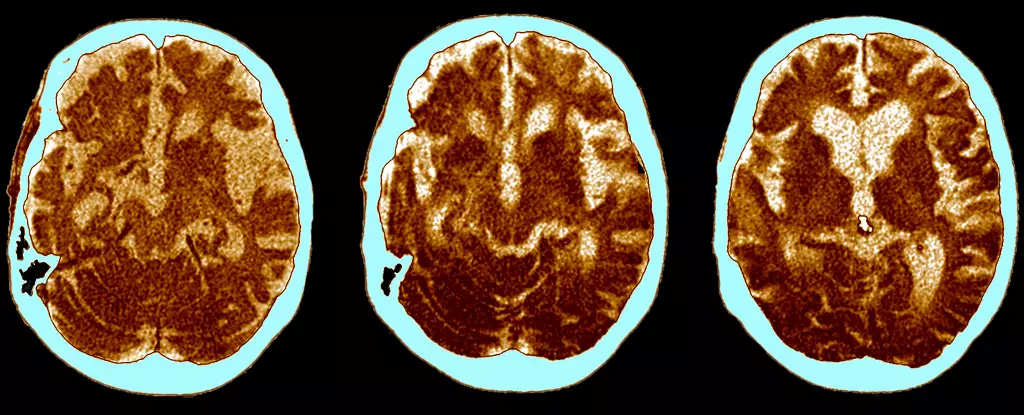In a recent study conducted by a team of researchers from the Netherlands Institute for Neuroscience, a fascinating discovery was made regarding individuals who showed neurological signs of Alzheimer’s disease but remained cognitively healthy. Among the brain tissue samples stored at the Netherlands Brain Bank, only 12 cases were found where individuals had clear pathology of the disease yet did not exhibit any symptoms. This rarity opened up a new avenue of research into what makes these brains more resilient to the effects of Alzheimer’s.
The resilience of these brains has been attributed to a combination of genetics and lifestyle factors. Researchers have found that the unique gene expressions in these resilient brains, particularly related to astrocyte cells responsible for waste clearance, play a crucial role in preventing the buildup of toxic proteins associated with Alzheimer’s disease. Additionally, the efficient energy production in these brains contributes to their ability to protect themselves from neurological damage.
Potential for Medication Development
Identifying the molecular basis for the resilience of these brains could potentially lead to the development of new medications that activate processes related to resilience in Alzheimer’s patients. With the global prevalence of Alzheimer’s reaching 47 million people and continuing to rise, finding ways to enhance brain resilience against the disease is more crucial than ever. While the exact mechanisms behind the differences in resilient brains remain unclear, further research in this area could provide valuable insights into novel treatment approaches.
Despite the promising findings of this study, there are still many challenges to overcome in understanding and combating Alzheimer’s disease. The complex interplay of genetic, cellular, and environmental factors involved in the progression of the disease makes it difficult to pinpoint a single causative factor. Moving forward, researchers aim to uncover why resilient brains exhibit distinct production processes and how this knowledge can be translated into targeted interventions. By exploring these questions through experimental models and cellular studies, scientists hope to gain a deeper understanding of Alzheimer’s pathogenesis.
The investigation into the resilience of certain brains to Alzheimer’s disease marks a significant advancement in the field of neurodegenerative research. By unraveling the molecular mechanisms that underlie brain resilience, researchers have laid the groundwork for future therapeutic innovations. While there is still much to learn about Alzheimer’s disease, studies like this one offer a glimmer of hope for those affected by this devastating condition. Through continued collaboration and exploration, the journey towards effective Alzheimer’s treatments is steadily progressing.


Leave a Reply